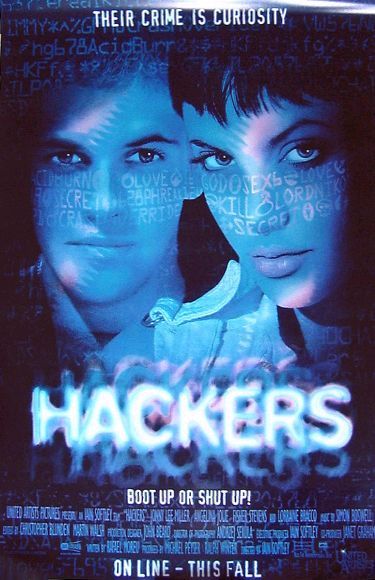 NEWS
NEWS
 NEWS
NEWS
 NEWS
NEWS
![]() Hackers are becoming more and more creative in their efforts to sneak into users’ computers and infect them. Many of those caught for cyber offences belong to the younger generation.
Hackers are becoming more and more creative in their efforts to sneak into users’ computers and infect them. Many of those caught for cyber offences belong to the younger generation.
Most motives behind the crimes include making quick money, sexual harassment, playing pranks, causing mayhem, taking revenge, and extortion. It is most worrying that these trends, so insidiously sanctioned by the Internet’s seeming anonymity and intangibility, may lead to more crimes committed by youths both on an online and non-virtual platform, especially with the proliferation of the internet.
According to a report published by Mainichi Japan, the number of cases of youth’s prosecuted for violating the Unauthorized Computer Access Law has jumped fourfold, up from 16 percent as compared to 2003. A record of 64 youths, aged between 11 and 19 were arrested for gaining unauthorized access to computers–accounted for 21 percent of all such crimes in 2003.
Cyber victims reported higher depression than cyber bullies or bully-victims, which was not found in any other form of bullying. In one such case, a 17 year old hacker hacked his friend’s Gmail account without permission and changed the settings so that the account owner could not access, in a bid of depression as his friend had told another friend not to spend time with him.
In another case, a 12-year-old girl stole virtual currency called Ameba Gold by hacking dozens of people IDs she met though the membership-based social networking site Ameba Pigg. Metropolitan Police Department reported early in this year that around 160 user IDs of Tokyo-based e-book sellers Kinokuniya Co. were confirmed to have been hacked to illegally download some 36,000 e-books worth about 21.7 million yen (around 200,000 US dollars) for free from Kinokuniya’s e-book sales application.
Takeuchi in a survey conducted between November and December of last year on 1,362 junior high school students in Osaka and Shiga in Japan found that young students considered compromise of passwords for blogging and re-writing is a crime, with 34.6 percent of the students who said it wasn’t a crime admitted they had taken such action.
Economic cyber criminals are very clever and constitute a major threat. In 2012, numerous computer systems around the world, including those owned by the U.S. government, continued to be targeted for intrusions, some of which appear to be attributable directly to the Chinese government and military.
Most teen are a bit less smart with their online security and use the same password to log into multiple sites, making the chances of being hacked on other password-protected pages even greater.
Alarm over youth cybercrime – There is a need for awareness campaigns
According to a report by PricewaterhouseCoopers (PwC) LLP Global Economic Crime survey released last year, cybercrime conducted by youth accounts for 38 per cent of economic crime incidents compared to 16 per cent for other industries.
Another report released in July by Centre for Strategic and International Studies (CSIS), said global cyber activity is costing up to $500 billion each year, which is almost as much as the estimated cost of drug trafficking. In the US alone, it is estimated that cybercrime is the catalyst behind the loss of as many as half million jobs as companies struggle with the loss of coveted intellectual property, confidential strategies that are snooped on, and suffer reputational harm.
So what does the people do next if the cyber-attacks keep coming? There is need for carrying out awareness campaigns on emerging cyber threats and building the capacity to respond to the attacks in case they occur. The effective prevention is the only solution to minimize cyber costs brought about by hacking which continues to grow in size and intensity.
“The Internet has become such a familiar presence in our lives, but children don’t have the opportunity to learn what the law prohibits them from doing,” Takeuchi says. “To provide students with correct information, we must improve our teaching materials and offer instruction to teachers.”
The U.S. Health Resources and Services Administration advises parents to encourage children to tell them immediately if they are victims of cyberbullying or other troublesome online behaviors. The agency also lists a number of steps that parents can take to help prevent cyber bullying and how to respond to it.
The administration also advised to conduct regular risk assessments and surveys in the coming years to gain a better idea of how to combat cybercrime and spread awareness of the legalities of the internet among youth.
Support our mission to keep content open and free by engaging with theCUBE community. Join theCUBE’s Alumni Trust Network, where technology leaders connect, share intelligence and create opportunities.
Founded by tech visionaries John Furrier and Dave Vellante, SiliconANGLE Media has built a dynamic ecosystem of industry-leading digital media brands that reach 15+ million elite tech professionals. Our new proprietary theCUBE AI Video Cloud is breaking ground in audience interaction, leveraging theCUBEai.com neural network to help technology companies make data-driven decisions and stay at the forefront of industry conversations.